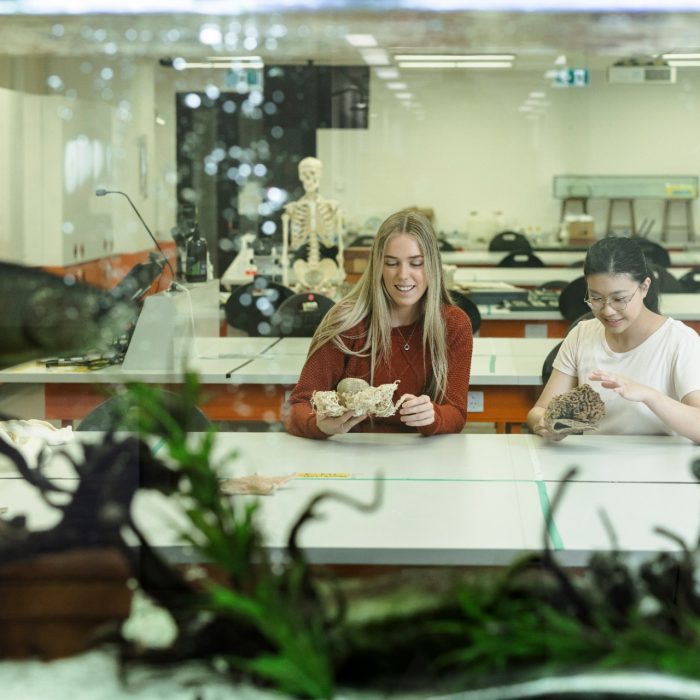Marine and coastal science

Explore all aspects of the marine environment
Marine and coastal science looks at all aspects of the marine environment, encompassing many disciplines. Within the School of Biological, Earth and Environmental Sciences (BEES), marine and coastal science can be studied with an emphasis on biology, Earth sciences or oceanography. Marine biologists look at life on the shore and in the oceans and estuaries, whereas marine geologists study the structure and topography of the ocean floor, ocean sedimentation and marine resources. Physical oceanography is focused on understanding waves, currents and their importance to climate and fisheries.
Gain a competitive edge with a UNSW degree
We're ranked #3 in Australia and =#37 globally for Earth & Marine Science (QS World University Rankings by Subject, 2025). UNSW is home to the Centre for Marine Science and Innovation, which provides plenty of opportunities to experience real-world marine research. The Centre’s expertise and experience covers a multidisciplinary mix of ecological and biological sciences, physical and biological oceanography, environmental impact assessment, coastal geomorphology and engineering.
Career opportunities in marine and coastal science
With 85% of Australian’s living near the coast, Australia has a large and growing “blue economy” involving tourism, fisheries, transport, energy and aquaculture. Managing our marine resources requires marine scientists that can work across a range of disciplines including engineering, conservation, biology, physics, geomorphology, chemistry, oceanography and palaeontology. Graduates find employment in many different government departments and research organisations (for example, fisheries, marine parks, museums, CSIRO, the Australian Institute of Marine Science, universities) as well as in the tourism industry. Graduates may also enjoy work in the aquaculture and marine biotechnology industry and growing sectors of private industry, such as consultant companies undertaking specialist research in resource and environmental fields.
Environmental study areas
If you're passionate about the environment, studying science is a great way to have a meaningful impact through almost all disciplines. In addition to marine and coastal science, you might be interested in studying biology, climate science, Earth science, ecology, environmental management, geography or physical oceanography.
Our programs
-
You can study marine and coastal science in the following undergraduate degrees:
-
Gain research experience and enhance your career prospects with an honours degree. These programs are designed to connect your undergraduate study with supervised independent research. An honours degree also provides a pathway into further study, such as a Masters by Research or PhD. You can take honours as a standalone degree or as part of an embedded honours program.
Embedded honours program
Standalone honours program
-
You can study marine and coastal science in the following postgraduate coursework program:
-
You can study marine and coastal science in the following postgraduate research degrees:
